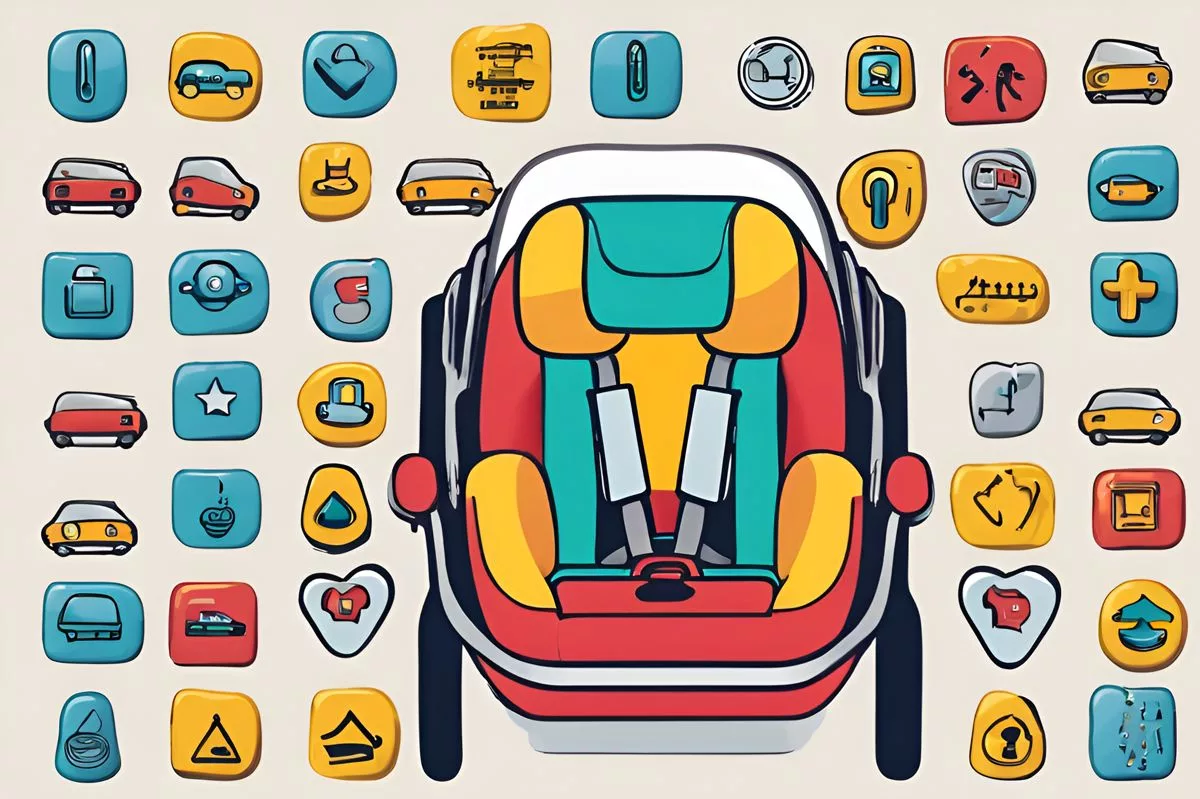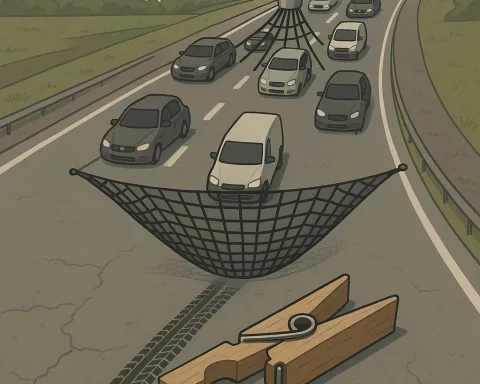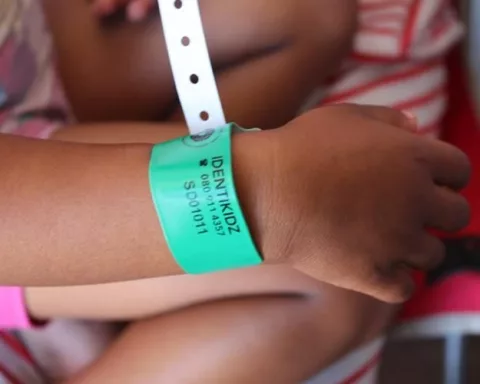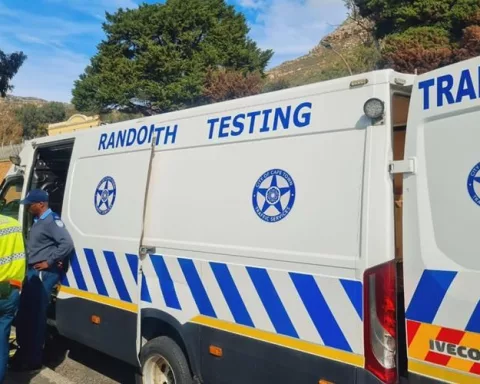In South Africa, road accidents are a major danger for kids, with many suffering serious head injuries every year. A startling 96% of children hurt in these accidents were not wearing seatbelts, highlighting the need for better car safety. The “Be Quick to Click” campaign is working hard to change this by promoting the use of car seats and encouraging communities to donate and refurbish unused ones. This initiative is not just about safety; it’s a call for everyone to come together and protect our children on the roads. Let’s make sure every child has a safe journey!
What are the main causes of child road injuries in South Africa?
Child road injuries in South Africa primarily stem from road accidents, with 80% of severe head injuries resulting from these incidents. A lack of seatbelt usage is critical, as 96% of children with severe traumatic brain injuries were unrestrained. Community initiatives like the Be Quick to Click campaign aim to enhance car seat safety.
The Alarming Reality of Road Accidents
In South Africa, road accidents pose a significant threat to public safety, with children being particularly vulnerable. The African Brain Child (ABC) research group in Paediatric Neurosurgery at the University of Cape Town has brought to light a distressing statistic: each year, 2,000 children between the ages of 0 and 12 suffer head injuries. Even more alarming, Cape {town} Etc reports that road accidents account for nearly 80% of these severe head injuries. This grave situation calls for immediate and substantial intervention to protect the youngest members of society.
The distressing figures become even more alarming when examining the specifics of traumatic brain injuries (TBI) among children involved in motor vehicle accidents. A staggering 96% of children admitted with severe TBIs were not restrained by seatbelts at the time of the accident. The recent 22.6% increase in road accident fatalities in the Western Cape during the festive season underscores the urgency of this issue. In response, the ABC has launched the ‘Be Quick to Click Car Seat Drive 2024’ initiative to address this crisis. In collaboration with Supa Quick and Wheel Well, this campaign aims to promote the use of car safety seats throughout October, designated as Transport Month, to prevent TBIs, often referred to as ‘the silent killer.’
The Critical Role of Car Safety Seats
The importance of car safety seats in protecting young passengers cannot be overstated. According to Arrive Alive, the use of car safety seats can reduce the risk of death in passenger vehicles by 71% for infants and 54% for toddlers. Since 2012, the Car Seats for Kids campaign, managed by Wheel Well, has played a crucial role in enhancing child safety, providing over 11,500 children with car safety seats. Professor Anthony Figaji, Director of African Brain Child, emphasizes the necessity of community involvement: “We have witnessed the human cost of motor vehicle accidents and TBIs in children we could not save. It is imperative that we collectively foster a sense of personal responsibility regarding seatbelt usage as a society.”
Experiencing a traumatic brain injury initiates a prolonged and challenging journey for survivors. Research indicates that even a single TBI can result in long-term inflammation and neuron damage, potentially affecting brain health for decades. A child who sustains a TBI today may face significant neurological challenges 20 or 30 years later. This enduring impact highlights the urgent need for preventive measures and effective interventions.
Despite the existence of legal mandates in South Africa requiring car seats for infants under three years old, financial constraints make these seats inaccessible for many families. Concurrently, many unused car seats lie dormant in garages, awaiting an improbable future sale. The Be Quick to Click campaign seeks to bridge this gap by encouraging donations and refurbishing these seats to ensure they remain safe and effective.
Community Involvement and Historical Context
Engagement from the community is vital for the success of initiatives like Be Quick to Click. There are numerous ways South Africans can support this life-saving movement. By visiting the Be Quick to Click website, individuals can join the initiative or gain more information about the prevention and impact of TBIs in children. Moreover, downloading the Be Quick to Click Research Report provides deeper insights into the scope of this issue and the significance of preventive measures.
The historical context of road safety in South Africa reveals a complex interplay of socio-economic factors and public health challenges. Over the years, various campaigns have aimed to address these issues, drawing inspiration from global movements and adapting strategies to local contexts. The current campaign aligns with a broader historical trend towards integrating public health initiatives with community action and leveraging advancements in vehicle safety technology.
Artistic and cultural dimensions also play a significant role in shaping public perception and behavior concerning road safety. Visual campaigns, educational programs, and community art projects have historically contributed to raising awareness and fostering a culture of safety. These efforts mirror strategies used by other global movements, such as environmental and anti-smoking campaigns, which have successfully utilized art and media to drive change.
A Broader Vision for Safety and Responsibility
The Be Quick to Click initiative aligns with this tradition by incorporating visual storytelling and community engagement to spread its message. By forging partnerships with local businesses and organizations, the campaign not only addresses the immediate need for car safety seats but also cultivates a broader culture of safety and responsibility.
This initiative reflects a growing recognition of the interconnectedness of health, safety, and socio-economic factors. By addressing the financial barriers to car seat access, the campaign acknowledges the broader context of inequality and strives to create a more inclusive approach to public health and safety.
Supporting the Be Quick to Click initiative goes beyond donating car seats or raising awareness. It involves a commitment to fostering a culture of safety and responsibility, recognizing the long-term impacts of TBIs on children, and working collectively to create a safer future for all.
The Road Ahead: Collective Efforts for a Safer Future
By participating in this movement, South Africans can contribute to a significant reduction in preventable tragedies and ensure that every child has a safe journey. This collective effort not only protects the most vulnerable members of society but also strengthens the fabric of community and social responsibility.
The historical and cultural context, combined with the pressing need for safety measures, paints a clear picture: safeguarding children on the roads requires a concerted effort from all sectors of society. From government regulations to community-driven initiatives like Be Quick to Click, every action counts in the fight to reduce the incidence of traumatic brain injuries among children.
In conclusion, the ‘Be Quick to Click Car Seat Drive 2024’ is not just an initiative but a call to action. It urges us to look beyond individual responsibility and embrace a collective commitment to safety. By doing so, we can ensure a safer future for all children in South Africa, mitigating the devastating impact of road accidents and fostering a culture of vigilance and care.
Let’s join hands and make every effort count towards safeguarding our children and making our roads safer for everyone. Together, we can turn the tide on this pressing public health issue.
FAQ
What are the primary causes of child road injuries in South Africa?
Child road injuries in South Africa are primarily caused by road accidents, with a staggering 80% of severe head injuries resulting from these incidents. A major contributing factor is the lack of seatbelt usage; 96% of children with severe traumatic brain injuries were unrestrained at the time of the accident.
How does the “Be Quick to Click” campaign aim to address this issue?
The “Be Quick to Click” campaign is designed to promote the use of car seats and encourage communities to donate and refurbish unused car seats. The initiative seeks to raise awareness about the importance of car safety and foster community involvement to protect children on the roads.
Why are car safety seats important for children?
Car safety seats significantly reduce the risk of death for young passengers. According to Arrive Alive, they can lower the risk of death by 71% for infants and 54% for toddlers. The proper use of car seats is crucial for preventing traumatic brain injuries, which often have long-lasting effects on children’s health.
How can the community get involved in the “Be Quick to Click” initiative?
Community involvement is essential for the success of the “Be Quick to Click” initiative. South Africans can support this movement by visiting the campaign’s website to join or donate car seats, and by downloading the research report to learn more about preventing traumatic brain injuries in children.
What are the long-term effects of traumatic brain injuries in children?
Experiencing a traumatic brain injury can lead to long-term inflammation and neuron damage, potentially affecting brain health for decades. Children who sustain a TBI may face significant neurological challenges later in life, underscoring the urgent need for preventive measures and community support.
What challenges do families face regarding car seat access in South Africa?
Despite legal mandates requiring car seats for infants under three years old, financial constraints make it difficult for many families to access these essential safety devices. The “Be Quick to Click” campaign addresses this issue by encouraging donations and refurbishing unused car seats to ensure all children have safe transportation options.












